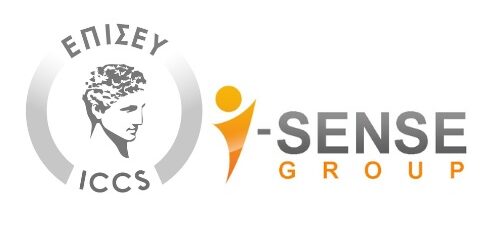With Colorectal Cancer (CRC) being accountable for 12.4% of all deaths due to cancer, and with only 14% of EU citizens participating in screening programmes, there is an urgent need for accurate, non-invasive, cost-effective screening tests based on novel technologies and an increased awareness on the disease and its detection. Furthermore, personalized approaches for screening are needed, to consider genetic and other socioeconomic variables and environmental stressors that lead to different onsets of the disease. ONCOSCREEN responds to these challenges by developing a risk-based, population-level stratification methodology for CRC, to account for genetic prevalence, socio-economic status, and other factors. It complements this methodology by a) developing a set of novel, practical, and lowcost screening technologies with high sensitivity and specificity, b) leveraging AI to improve existing methodologies for CRC screening, allowing for the early detection of polyps and provision of a personalized risk status stratification, and c) providing a mobile app for selfmonitoring and CRC awareness raising. Furthermore, ONCOSCREEN develops an Intelligent Analytics dashboard for policy makers facilitating effective policy making at regional and national levels. Through a multi-level campaign, the above-mentioned solutions
are tested and validated. For the clinical solutions specifically, a clinical validation study has been planned with the participation of 4100 enrolled patients/citizens. To ensure the adoption of the developed solutions by the healthcare systems, their cost-effectiveness and financial viability will be assessed. The 48-months duration project will be implemented by a multidisciplinary consortium comprising of 38 partners, including technical solutions providers, hospitals, Ministries of Health as policy makers, legal and ethics experts, Insurance companies, involving actively end-users/citizens in all phases of implementation through targeted workshops. This action is part of the Cancer Mission cluster of projects on ‘Prevention, including Screening.
ICCS assumes the role of Technical Coordinator (Technical Manager) of the project, to oversee the progress of all technical work packages, and contributes to the monitoring of the quality of project results, risk management and data management processes. Actively participates in the determination of user requirements for their effective subsequent matching to technological requirements and specifications. Also, ICCS contributes a) to the development of artificial intelligence tools for the identification of Volatile Organic Compounds (VOCs) biomarker patterns, as well as to the development of models and procedures for the reliability of artificial intelligence techniques. ICCSalso coordinates the process of determining the technical requirements and specifications as well as the design of the architecture of the entire system. Also contributes to system integration/completion issues, implementation of clinical decision support system and analysis and visualization system. The ICCS coordinates the technology review and technical evaluation activities of all technology tools, and supports end-user training and clinical trial activities. Finally, it participates in the procedures for the dissemination of the results, the wider visibility and utilization of the results of the Project, the conduct of living labs, and the awareness of the public in the screening of the disease.
I-SENSE group takes on the role of Technical Coordinator (Technical Manager) of the project, to oversee the progress of all technical work packages. Actively participates in the determination of user requirements for their effective subsequent matching to technological requirements and specifications. Also, I-SENSE contributes to the development of innovative artificial intelligence tools for the identification of Volatile Organic Compounds (VOCs) biomarker patterns. Our team also coordinates the determination of technical requirements and specifications as well as the design of the overall system architecture, and contributes to the development of a specialized analysis and visualization system (analytics dashboard). In addition, I-SENSE coordinates the technical evaluation activities of all technological tools. Finally, I-SENSE participates in conducting virtual living labs for the active participation of interested parties and individuals in the Project’s procedures.


